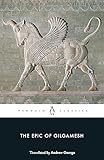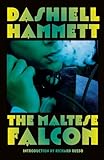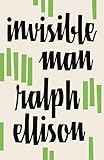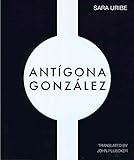If I cannot move heaven, I will stir up the underworld.
Virgil, The Aeneid
My reading—and life—were swallowed by subterranean forces in 2019—and I’m all the better equipped to face our civilizational crisis because of it.
Besides the fact that I work out of a collective literary cave called the Writers Grotto, the primary reason for the obsession with underworldly literature is my own book: a reported memoir about my 30-year journey across the 2,500-mile chain of mass graves, forgotten dead, and devalued life. The book takes me from wartime El Salvador to the remote tropical forests, cartel-controlled deserts and other infernal places where underground elements—MS13 and other gangs, as well as governments—have killed, dismembered, and buried tens of thousands of their victims.
Underneath a refugee crisis story conveniently curated to begin at the U.S.-Mexico border is an altogether different reality from that contained in spectacularly shallow headlines that have, at different times, dominated the electoral and news cycle for weeks, as we will soon see again in the coming election year.





 The refugees’ epic journeys through Mexico and the United States, my home country, are the closest thing many U.S. citizens will ever come to western civilization’s foundational underworld stories, the Epic of Gilgamesh, Homer’s Odyssey or Virgil’s Aeneid.
The refugees’ epic journeys through Mexico and the United States, my home country, are the closest thing many U.S. citizens will ever come to western civilization’s foundational underworld stories, the Epic of Gilgamesh, Homer’s Odyssey or Virgil’s Aeneid.
Yet, if there was ever an English-language story that could benefit from narrative power of the depths it is the Salvadoran epic. Outside of translations of the virtuoso writing of award-winning journalist Oscar Martinez, the author of the The Beast and The Hollywood Kid (written with his brother, Juan), there are few to no major English language Salvadoran narratives about the ongoing crisis written by actually existing Salvadorans. Scholarly works by Leisy Abrego, Joaquin Chavez, Cecilia Menjivar, and other U.S. scholars do much to fill in the academic void in the English language. Journalism and literature are another story.
My research shows that a similar erasure of Central Americans and the resultant superficiality in storytelling exists in recent media coverage of the ongoing humanitarian refugee crisis. The effects of this lack of a English-language Central American perspective (except, that contained in two dimensional images of pain and sound bites of suffering) can be seen in the controversy surrounding the video of Carlos Gregorio Hernandez Vasquez, a Guatemalan migrant who died in a south Texas immigrant prison.
After a news organization failed to ask their permission before releasing the disturbing footage of their boy’s horrific final hours, his parents released a statement in which they declared the following: “It’s been really painful for our family to lose Carlos….but having all these people watching him die on the internet is something we couldn’t have imagined in a movie or a nightmare.”
Left out of the crisis stories is a deeper context that includes the 74 other migrants who died similarly horrific deaths between March 2010 and early 2017. Unlike Hernandez Vazquez’s, these stories and bodies were buried in anonymous media graves by the inconvenient fact that they weren’t killed by Donald Trump.
Desaparecido in the English language is the voice of those hailing from cultures that the great Nicaraguan-Salvadoran poet Claribel Alegria described as a “map of deep mystery.”
In search of a deeper way to tell this perpetually-urgent story, I found the ideal trope with which to explore ideas and emotions in times of such epic and interconnected personal and political crisis: the trope of the underworld.










 The magical literary workings of the Great Below are described in Wendy Lesser’s masterful The Life Below the Ground: A Study of the Subterranean in Literature and History. Hands down the best survey of the subterranean in literature, Lesser’s book helped me understand (pun kind of intended) how different authors have used narratives of descent as a way to structure, move and animate fiction, nonfiction and poetry, especially in times of profound personal and civilizational crisis.
The magical literary workings of the Great Below are described in Wendy Lesser’s masterful The Life Below the Ground: A Study of the Subterranean in Literature and History. Hands down the best survey of the subterranean in literature, Lesser’s book helped me understand (pun kind of intended) how different authors have used narratives of descent as a way to structure, move and animate fiction, nonfiction and poetry, especially in times of profound personal and civilizational crisis.
Central to the different genres using underworld tropes—noir (i.e. The Maltese Falcon), thrillers (i.e. The Third Man), sci-fi (i.e. The Time Machine), psychological, working-class struggle (Hard Times), racism (Invisible Man)—argues Lesser, is the way such literature contrasts a surface world or reality with a parallel world below. And, more often than not, this contrast serves to attack the existing order. In our Age of the Spectacular Superficiality, dissent necessarily means descent.
To complement the shortcomings of Lesser’s marvelous book, my own reading drew primarily from the wells of a underworldly Latin American literary tradition that includes the Popol Vuh, the Mayan book of creation, Antígona González which uses the Greek tragedy Antigone to tell a story of the search for Mexico’s thousands of desaparecidos, and Yuri Herrerra’s outstanding Signs Preceding the End of the World, the story of a lyrical, hard-boiling journey into the criminal, political and migration depths. The first words of the protagonist, Makina, who works as a telephone operator, make clear the story’s abysmal ambitions: Estoy muerta.
A great 19th-century illustration of how the narratives of descent disorganize the senses of readers in ways Rimbaud demanded of all poets is Lewis Carroll’s Alice’s Adventures in Wonderland. Carroll deployed Alice’s journey, in part, to disrupt and deconstruct Victorian English sensibilities. He did so using a defamiliarizing technique that defines the workings of the underground in literature: literally deforming a character’s (in his case Alice’s)—and everyone else’s—body, their sense of identity and meaning. Also known as “katabasis,” the underworld journey of rebirth also serves to alter notions of time and space, as Carroll does to the spatio-temporal ideas created and enforced by the forces of industrial capitalism.
A more contemporary filmic example of the uses of the underworld trope to disorganize our senses is The Matrix, released at the beginning of the century, in 1999. Neo, the Wachowski sisters’ central character, undergoes an Alice-like descent into the depths of the myths and lies of post-industrial capitalism. These myths and lies are delineated in John Beaudrillard’s epochal Simulacra and Simulation, a book featured in the movie. Both remain relevant.
The literary future also appears to be going under to find the “deep time” that Robert Macfarlane’s striking book, Underland, implores us to better align our species with.
All the prizes and plaudits recently won by narratives using subterranean tropes appear to indicate that the literary and cultural establishment also believes these tropes can help us to grapple with our astonishing global crisis and inequality. Jordan Peele’s Us used underworld themes to great effect and garnered numerous awards. My favorite award-winning filmic example this year is Korean master Bong Joon-ho‘s Parasite, a brilliant satire about the class conflict brewing in the nuclear bunkers turned into housing beneath the apartment buildings and homes of post-war South Korea. The film’s acid critique of the Korean “economic success” story has already racked up Cannes’ Palme d’Or, eight Golden Globe nominations, and is generating serious Oscar buzz.
In similar fashion, this year’s Nobel prize in literature went to Olga Tokarczuk, the author of Drive Your Plow Over the Bones of the Dead, a book whose protagonist balances her heavenly pursuit of astrological truths with her love of one of the greatest English language promoters of underworld power, William Blake. The theatrical re-telling of the Orpheus myth of Hadestown won eight Tony awards this year, including Best Musical, while The Ferryman, the story of a former member of the Irish underground, the IRA, won the Tony for Best Play.
On television, HBO’s Westworld series regularly takes viewers on this underworld journey each time its (robot and human) characters descend into the high-tech storeroom where androids, some of which/whom are becoming sentient, have the stories they’re programmed to enact in the amusement park world above erased. This descent into erasure parallels the crossing of the Lethe, the mythological Greek River of Forgetfulness (or, in some interpretations “river of Unmindfulness) that the souls of the dead must drink from before entering the afterlife. The literary treatment of the Lethe is described smartly in Herald Wienrich’s Lethe: The Art and Critique of Forgetting. “Lethe” is also at the center of the adventure and search for truth in the recent His Dark Materials television series based on the Phillip Pullman book series of the same name. The instrument guiding Lyra, the story’s central character, as she navigates a world layered in lies, intrigue and erasure is called a “alethiometer,” a kind of compass that finds the truth behind any question asked of it. This association of of the Lethe with truth also harkens back to the Greeks for whom the search for truth was directly related to remembering forgotten truths.
Our time, our literature require the narrative alethiometer that is the underworld. Recent revelations that 3 U.S. Administrations—Bush, Obama and Trump—lied to the public to keep almost a trillion dollars of our tax dollars flowing to military industrial contractors and others profiteering from death and war in Afghanistan should serve as a reminder to go deep—and then keep going deeper.
For these and other reasons, I let the underworld swallow my attention this year. And, from a glance up at the future, I will continue to follow Blake and and AC/DC in seeking salvation on the highway to hell.
More from A Year in Reading 2019
Don’t miss: A Year in Reading 2018, 2017, 2016, 2015, 2014, 2013, 2012, 2011, 2010, 2009, 2008, 2007, 2006, 2005









